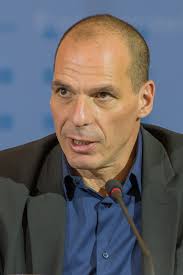Understanding Yanis Varoufakis and His Impact on Economics

Introduction
Yanis Varoufakis, a prominent figure in contemporary economics and politics, has made headlines for his stances on economic reforms and his critique of austerity measures in Europe. As the former finance minister of Greece, his relevance in discussions surrounding fiscal policy and economic justice continues to be significant, particularly in the light of ongoing challenges faced by economies worldwide.
Rise to Prominence
Varoufakis was appointed Greece’s finance minister in January 2015 during a tumultuous period marked by the country’s severe debt crisis. He quickly became known for his outspoken opposition to the European Union’s austerity policies, arguing that they were counterproductive and damaging to the Greek economy. His tenure was short-lived, lasting until July 2015, but it was marked by his vigorous efforts to negotiate debt relief and reform in both Greece and the Eurozone.
Continued Influence
After stepping down from his ministerial role, Varoufakis remained active in the global economic discourse. He founded the DiEM25 movement, which aims to democratise the European Union and address issues of inequality and financial instability. His public lectures and writings, including his bestselling book ‘Adults in the Room’, have attracted significant attention and provided critical insight into the workings of international finance and policy-making.
Key Perspectives
Varoufakis advocates for a radical change in how economies function, emphasising the need for sustainable practices and a reconsideration of capitalist structures. He often highlights the importance of creating a unified Europe that is not solely driven by profit but also considers social welfare and environmental sustainability. His critiques extend beyond local economies, addressing global challenges such as climate change, technological advancement, and social inequality.
Conclusion
The perspectives of Yanis Varoufakis are increasingly relevant in today’s rapidly changing economic landscape. As nations face the fallout of the COVID-19 pandemic, inflation, and rising inequality, his calls for systemic change resonate with many advocates for economic justice. Looking ahead, Varoufakis’s role in shaping the dialogue around economic reforms will likely persist, especially as younger generations seek alternatives to traditional economic models and grapple with the realities of a post-pandemic world. Readers may find that his insights encourage a deeper understanding of the complexities within global finance and governance.
